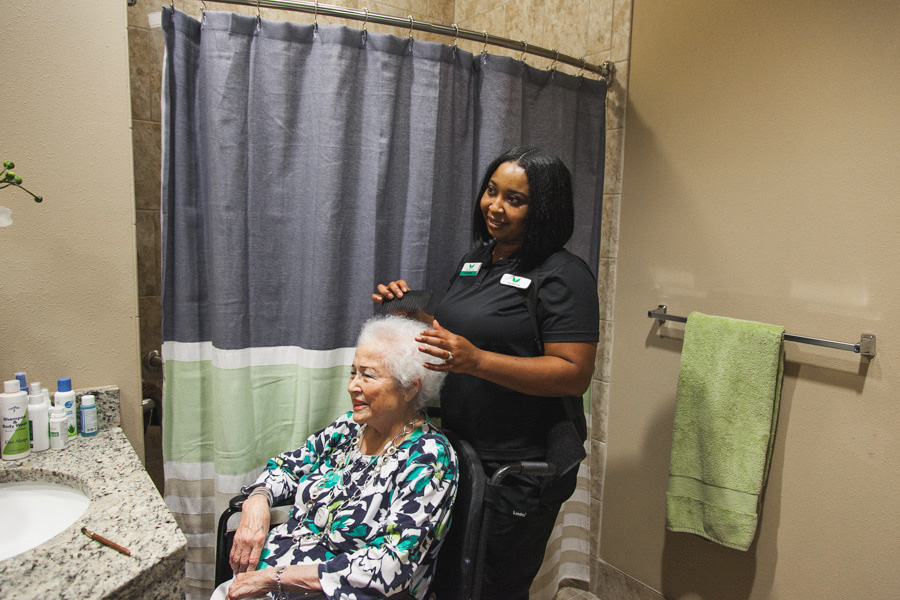At Angels Senior Living, we strive to keep our residents smiling. Part of our approach is incorporating creative and energetic activities. We understand that a good social calendar is filled with a well-rounded range of senior living activities designed to engage residents of all different interests and abilities. These activities are not only fun and entertaining, but are also known to improve the mental health of seniors, as a recent study concluded that stimulating leisure activities significantly reduced the risk of dementia.
Putting a smile on a resident’s face is easily done with a fun and engaging mix of activities. In addition to our library, movie screenings, pool table, and games for assisted living facilities, here are a few ways we keep our seniors happy.
- Flexercise Classes – Part flexibility course, part exercise, “flexercise” classes help get seniors moving. Flexercise is an ideal way to keep seniors active, as it can be done in a chair and is very low-impact. It was originally designed to benefit older people who live in senior living or assisted living facilities to meet the needs of older people who are at risk of developing mental health problems.
- Arts and Crafts – Many seniors enjoy arts and crafts of various kinds, including sewing, painting, woodcarving, drawing, and scrapbooking. These activities keep both minds and bodies nimble, as they allow seniors who suffer from limited dexterity, low vision, and other physical or mental limitations enjoy being creative and can give them a feeling of accomplishment.
- Religious Services – We like to provide times for our residents to embrace their spirituality through church services, prayer meetings, and bible studies. Residents can embrace their spirituality in a socially engaging environment, contributing to mental agility.
- Sing-Alongs – While the idea might sound silly, sing-alongs are an incredibly beneficial form of music therapy for those with memory problems such as dementia and Alzheimer’s disease. People with such diseases can respond to music when nothing else can reach them, as musical memory is known to somehow survive these diseases.
- Monthly Themed Parties – Why wait for special occasions to celebrate? We like to keep things exciting by throwing themed parties for our residents so that they can have fun and socialize in a celebratory environment.
Want to learn more about our assisted living facilities? Contact us today at (877) 480-2244 for more information.






